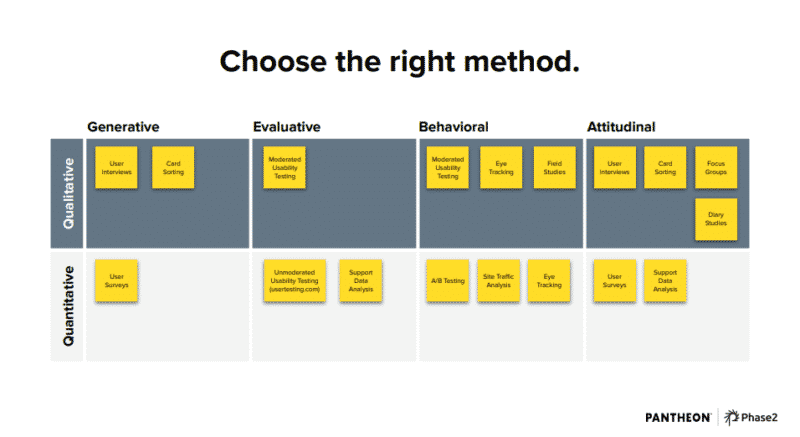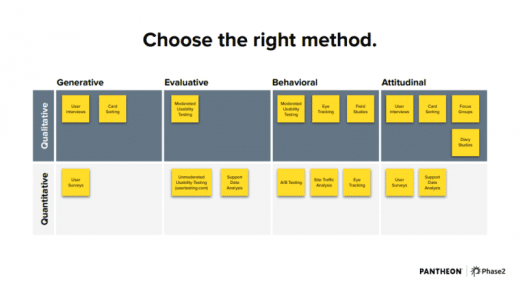How to implement the best UX strategy in a changing digital environment
UX is more than design changes; it’s a marketing strategy.
Your users’ preferences and expectations are constantly changing, so if your brand’s digital experience isn’t changing as well, customers will find your offerings less relevant.
Many companies have tried to fix this problem by investing heavily in updating the aesthetics of their digital properties. But this is just one part of user experience as a whole.
“UX is more than just designing a modern website; UX really is a strategy,” said Kelly Gustainis, Lead UX Researcher at Pantheon, in her recent MarTech session. “It affects more than just your design team. It affects more than just your product team. It is a way of thinking and approaching problems.”
She added, “When I say ‘strategy,’ I just mean it’s an ongoing process. It’s going to be iterative and it keeps your roadmap relevant to your user needs over time.”
Here are four steps Gustainis recommends taking to implement an effective UX strategy.
1. Know your data sources
Marketers should make a list of every data source they already have access to. Knowing what resources you have access to highlights the avenues for gaining actionable user data.
2. Ask specific UX research questions
The success of your UX project depends on knowledge of the issues, which means marketers should be asking the right questions. Your questions should first seek a general understanding of users’ experience, then reflect on the purposes behind them.
3. Use the right implementation method
Look for trends in your UX research questions. For instance, you can group queries into behavioral, generative, evaluative, or attitudinal sections. It’s helpful to further categorize these into qualitative and quantitative questions. Share these insights with your stakeholders to highlight the reasons behind your implementations.

4. Learn why your users interact in the ways they do
Gustainis says that the “what” is only as useful as the “why” in UX strategy. Pairing quantitative data with qualitative data helps marketers understand the reasons behind user actions, making it easier to craft solutions that meet their needs.
The post How to implement the best UX strategy in a changing digital environment appeared first on MarTech.
(42)



